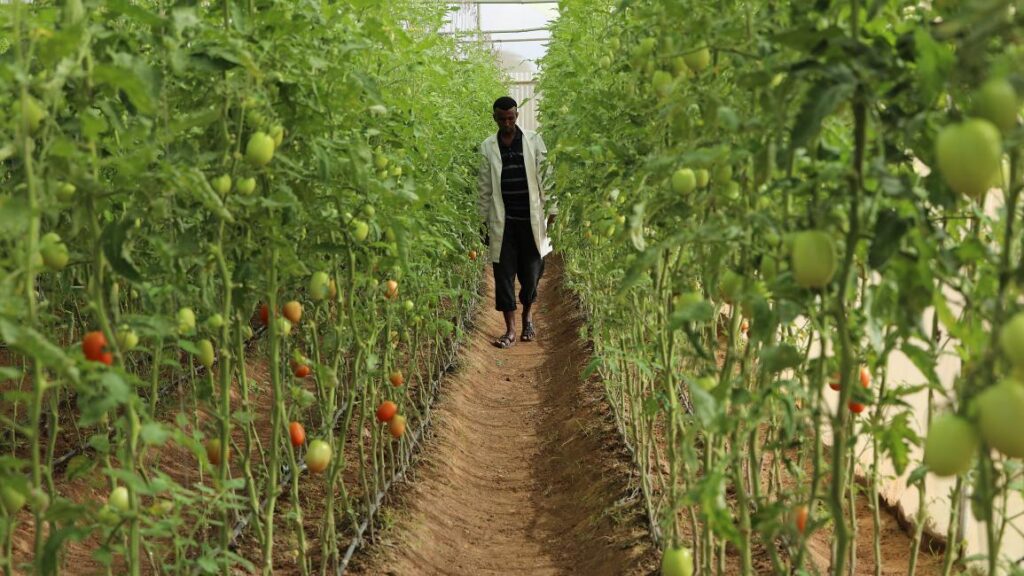For years, thousands of Somali youth attempted perilous journeys across the Gulf of Aden and the Red Sea to reach Saudi Arabia and other Gulf states.
These voyages—often aboard small, overcrowded fishing boats via Yemen—were marked by danger, extortion, and shattered dreams.
But in Baidoa, South West Somalia, a new story is unfolding.
Young returnees are turning failed illegal migration attempts into successful homegrown enterprises that provide income, dignity, and hope.
Illegal Migration No Longer Holds the Same Appeal
Until recently, illegal migration to Gulf countries, especially Saudi Arabia, was seen by many Somali youth as their only escape from unemployment.
Today, the harsh reality faced by those who reached Yemen or Saudi Arabia has shifted perceptions.
Large numbers are now returning voluntarily after struggling to find decent work or being detained and deported.
This change in mindset is visible in Baidoa, where dozens of returnees are embracing farming as a reliable livelihood instead of risking their lives at sea.
Mahmoud Noor Hassan: From Smuggling Victim to Successful Farmer
One striking example is Mahmoud Noor Hassan, 39, who once attempted to migrate illegally to Saudi Arabia.
Today he lives a stable life as a farmer, supporting his family and earning a steady income.
Hassan is part of a group of 50 young Somalis who transformed their failed migration experiences into a collective farming project by leasing agricultural land.
In his first season alone, Hassan earned more than $800 selling vegetables in Baidoa’s markets.
This income enabled him to rent a home, pay for his children’s schooling, and save money for the first time.
“In the past I lived on begging,” he recalls.
“Now I go to my farm every morning and return with vegetables that feed my family.
I have never lived better than this.”
Read also: 8 International Food Security Projects in Somalia Supporting Displaced People
Farming as a Collective Solution
Hassan’s story reflects a broader shift.
Many returnees once endured months in smuggling jails or paid heavy ransoms to escape traffickers. Forced back home empty-handed, they have now discovered opportunity in the very soil they left behind.
One such farmer, Ibrahim Musa, says he once depended on relatives for a single daily meal.
Today, after selling tomatoes, onions, and beans, he can rent a small home and educate three children, earning more than $700 in one season.
“Each of us can now support our families and save for emergencies,” Musa explains.
“This change has restored our dignity and peace of mind.”
Somali Youth Investment Inspired Plans for Even Bigger Projects
Group leader Ishaq Noor adds that the initiative began in March with a collective fund of $15,000 raised from loans and family contributions.
The youth invested in a water well and pump, enabling them to cultivate large plots of vegetables and maize.
Their success has inspired plans for even bigger projects to expand production and income.
Tackling Unemployment and Preventing Extremism
The stories of Baidoa’s farmers reveal the deep link between youth unemployment, illegal migration, and extremism in Somalia.
According to the World Bank, youth unemployment exceeds 70%, pushing thousands into two dangerous options: joining armed groups like Al-Shabaab or embarking on life-threatening smuggling routes.
Irregular migration across the Gulf of Aden and the Red Sea remains one of Somalia’s most pressing humanitarian crises.
The International Organization for Migration (IOM) reports that hundreds of Somalis are deported each year after failing to reach their destinations.
Many return home burdened by debt after families paid ransoms to free them from traffickers.
A Model for Economic Alternatives
What makes Baidoa’s youth farming project stand out is its practical demonstration of viable economic alternatives.
By creating steady incomes, the initiative shields young people from being drawn into extremism or illegal migration.
It also restores community confidence in local opportunities.
Mahmoud Noor Hassan sums up this transformation while inspecting his crops:
“If we invest our effort and sweat in our own land, we won’t need to risk our lives.
Unemployment is our biggest enemy, and work is the path to dignity.”
A Reason to Stay, Invest, and Thrive at Home
Baidoa experience offers a blueprint for addressing Somalia’s intertwined challenges of youth unemployment, irregular migration, and insecurity.
With targeted support—such as access to credit, agricultural training, and market linkages—projects like this can scale up and give thousands of young Somalis a reason to stay, invest, and thrive at home rather than seeking uncertain futures abroad.
Source: Alaraby.Co








